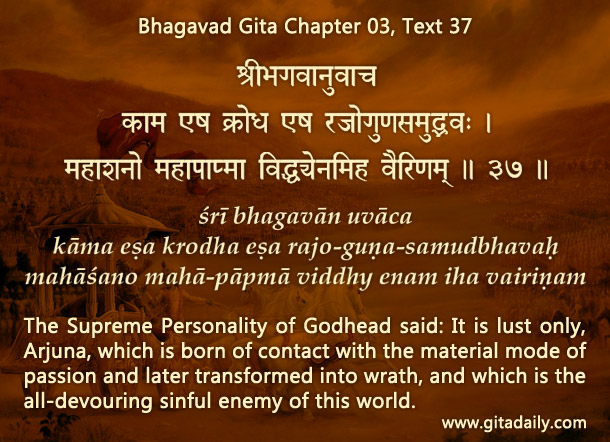We are often enmeshed in various battles around us – political battles in our countries, corporate battles in our offices, and domestic battles in our homes. Reflecting our embattled situation on a much bigger scale, the Bhagavad-gita was spoken on the verge of a huge battle.
Arjuna had to fight against vicious power-hungry elements who had disrupted society’s ethical order and were intractable to any peaceful resolution. And yet at the outset of such a consequential battle, whom does the Gita identify as the greatest threats to the world? Not the tyrants arrayed on the opposite side, but the selfish desires within all of us – it deems them all-devouring sinful enemies (03.37).
Does this mean that there are no outer enemies at all? Not exactly. Some people capitulate abjectly to their lower desires, being seduced by those desires’ false promises of pleasure. By such capitulation, they become instruments for those inner enemies to further their inimical agendas in the world. Such people who have become the world’s outer enemies need to be crushed. But tackling those disruptors is not enough. To establish social order sustainably, we all need to lead by example, in fighting against our inner enemies.
For fighting this inner war, we need to first recognize its consequentiality. That recognition inspires us to internalize the spiritual insights and practices that equip us to subdue our disruptive desires. By that inner victory, we get the calmness and clarity to fight our outer battles more effectively. We defeat those outer enemies who are incorrigible. And, more importantly, we inspire people in general to seek similar calmness and clarity by winning their inner battles, thereby becoming more peaceable.
Thus, when we fight our inner battles seriously, we contribute to a grassroots movement for building a harmonious society through inner spiritual transformation.
To know more about this verse, please click on the image
Explanation of article:
Podcast:
Audio Player
Download by “right-click and save”


Leave A Comment